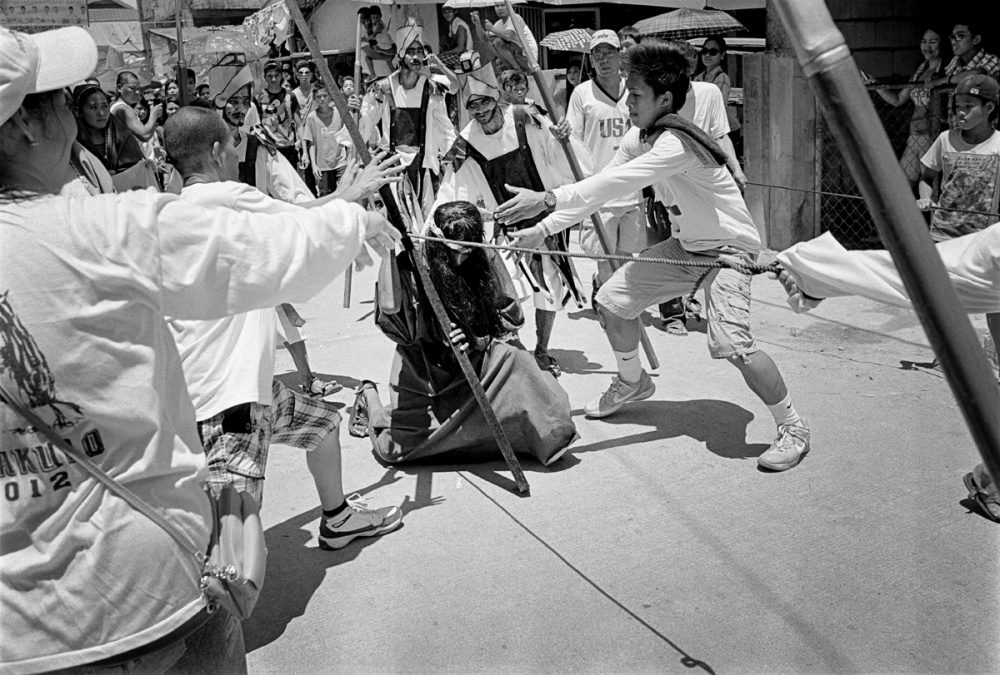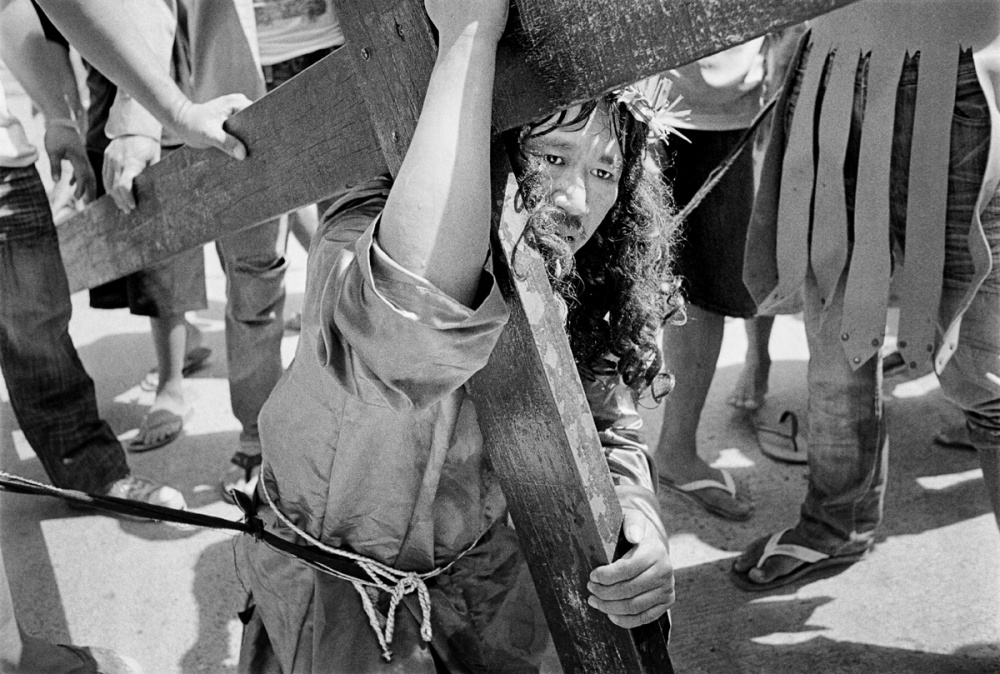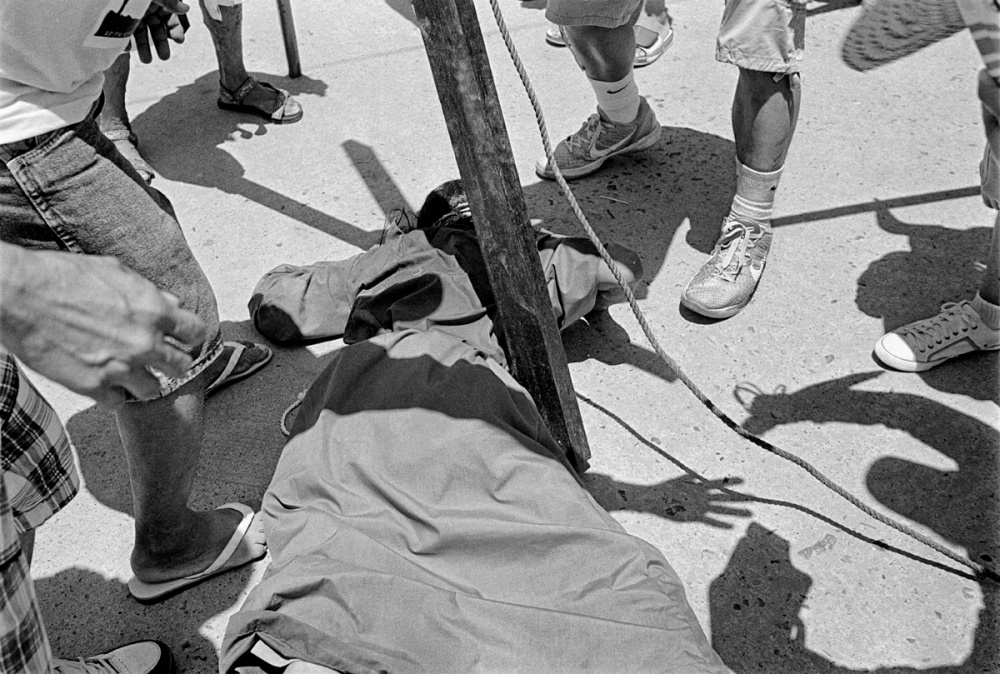Lenten Rituals and Crucifixion in Pampanga
Religious festivals in the Philippines occur all year long in this predominantly Catholic nation. These festivals are held to celebrate a patron saint or liturgical season such as the Lenten Season. The Lenten season celebrates the passion and death of Jesus Christ and is done in a grand manner throughout the country which intensifies during the Holy Week.
In Pampanga, north of Manila the Holy Week celebration combines church beliefs and folk traditions. Hundred of penitents and flagellants line the street and walk barefoot for hours with their faces covered.
Some penitents carry wooden crosses and are beaten by sticks and hemp as they parade around. Flagellants are everywhere hitting their backs with sharp bamboo sticks and pieces of wood. Their backs are covered by blood even splattering to spectators nearby.
On Good Friday, the celebration is highlighted when several men nailed to crosses in the re-enactment of the crucifixion of Jesus Christ. These real life crucifixions are staged in Barangay Cutud, San Fernando City of Pampanga and nowadays in several small towns around it.
The event in Barangay Cutud is largely organized by the Department of Tourism, local government units, travel companies and several major commercial sponsors. The penitents are mounted in three crosses on top of low hill and suited in fancy costumes complete with a microphone. This drew in large crowd of spectators and media both local and foreign.
In contrast, the crucifixions which happen on small towns nearby San Fernando City are organized by a few local devotees or politicians, attracts the local people, and penitents are clothed in simple garments.
These practices of extreme penitence are done by penitents annually as they enter into a personal religious pledge between themselves and God to seek petitions for the sick, intentions for a better life, to give thanks, and to atone for their sins. This spectacle of devotions started in the 1950s and continues annually however this practice is not condoned by the local Catholic Church.



















